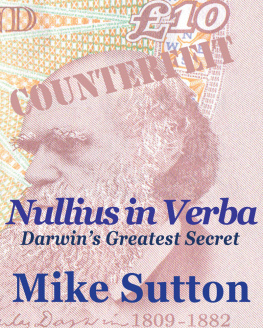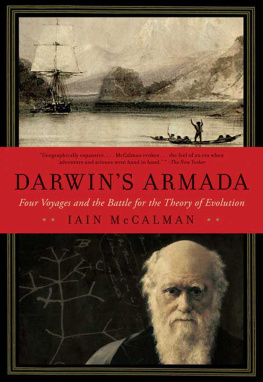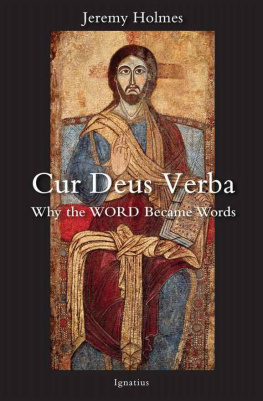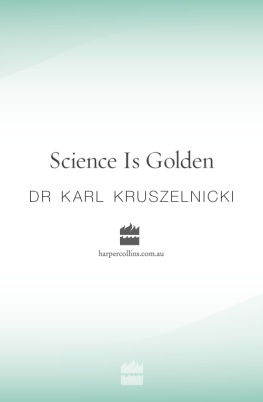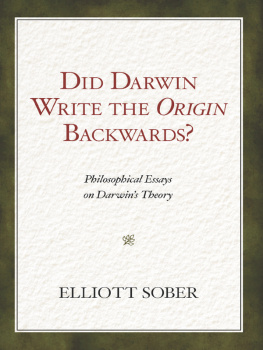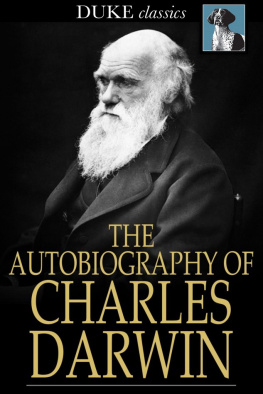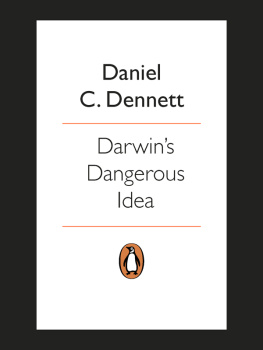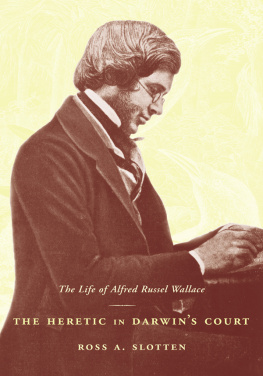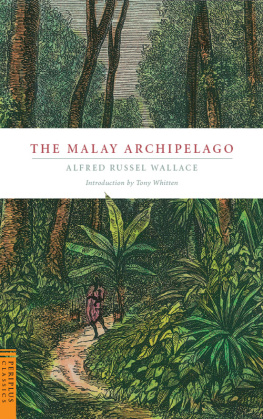Mike Sutton - Nullius in Verba -- Darwins greatest secret
Here you can read online Mike Sutton - Nullius in Verba -- Darwins greatest secret full text of the book (entire story) in english for free. Download pdf and epub, get meaning, cover and reviews about this ebook. year: 2014, publisher: Thinker Media Inc, genre: Religion. Description of the work, (preface) as well as reviews are available. Best literature library LitArk.com created for fans of good reading and offers a wide selection of genres:
Romance novel
Science fiction
Adventure
Detective
Science
History
Home and family
Prose
Art
Politics
Computer
Non-fiction
Religion
Business
Children
Humor
Choose a favorite category and find really read worthwhile books. Enjoy immersion in the world of imagination, feel the emotions of the characters or learn something new for yourself, make an fascinating discovery.
- Book:Nullius in Verba -- Darwins greatest secret
- Author:
- Publisher:Thinker Media Inc
- Genre:
- Year:2014
- Rating:3 / 5
- Favourites:Add to favourites
- Your mark:
- 60
- 1
- 2
- 3
- 4
- 5
Nullius in Verba -- Darwins greatest secret: summary, description and annotation
We offer to read an annotation, description, summary or preface (depends on what the author of the book "Nullius in Verba -- Darwins greatest secret" wrote himself). If you haven't found the necessary information about the book — write in the comments, we will try to find it.
Nullius in Verba -- Darwins greatest secret — read online for free the complete book (whole text) full work
Below is the text of the book, divided by pages. System saving the place of the last page read, allows you to conveniently read the book "Nullius in Verba -- Darwins greatest secret" online for free, without having to search again every time where you left off. Put a bookmark, and you can go to the page where you finished reading at any time.
Font size:
Interval:
Bookmark:
"I think that no one will feel surprised that neither I, nor apparently any other naturalist, had heard of Mr. Matthew's views, considering how briefly they are given, and that they appeared in the appendix to a work on Naval Timber and Arboriculture." Charles Darwin (1860)
"In 1831 Mr. Patrick Matthew published his work on 'Naval Timber and Arboriculture,' in which he gives precisely the same view on the origin of species as that (presently to be alluded to) propounded by Mr. Wallace and myself in the 'Linnean Journal,' and as that enlarged on in the present volume. Unfortunately the view was given by Mr. Matthew very briefly in scattered passages in an Appendix to a work on a different subject, so that it remained unnoticed until Mr. Matthew himself drew attention to it in the 'Gardener's Chronicle,' on April 7th, 1860." Charles Darwin (1861)
Nullius in Verba(On the word of no one). Motto of the Royal Society since 1663. From Horace, Epistles 1.1.14: "Nullus addictus jurare in verba magistri." This means: "I'm not committed to swearing by the words of any guru."
For some weeks I'd been experimenting with different ways to find hidden knowledge by trying out different combinations of date, source and text filtering on Google's search engine. Finally, a breakthrough was made on January 15, 2013, when I found a way to identify early and discoverable published uses of words, phrases and terms. I'm not claiming to be the first to discover it, but I named the method Internet-Date-Detection (ID). I later learned of Google's Ngram viewer, but found it less suited to scholarly tasks.
The power of ID was proven when it allowed me to detect, contrary to what the text books say, that Professor Stanley Cohen never coined the phrase or concept of moral panic. Three months later, ID murdered the myth that Richard Dawkins coined the phrase and originated the concept of the selfish gene.
On March 5, 2013, I set the fatal ID method on Dawkins' hero Charles Darwin. The outcome was shocking. Contrary to what I and apparently everyone else believed, Darwin never coined the term "natural selection," and he never discovered the process; although many scholarly books claim he did both. In actual fact, the term was used by William Preston six years before Darwin was born. And the scientific breakthrough of natural selection theorythe entire detailed description of its evolutionary biological process, the hypothesis for it and the key examples used to explain itare all unquestionably Patrick Matthew's unique discovery and creation.
Despite the fact that this discovery had been fully published by Matthew (1831), 28 years before he replicated it, Darwin boldly claimed to have independently discovered the theory for himself. What is more, at the same time, Alfred Russel Wallace made his own claim to have independently discovered the exact same thing.
During my research I detected the first glint of a possible fraud behind Darwin's story. Word and phrase searching the work of Matthew and comparing it with Darwin's revealed that nine times in his 1859 book the Origin of Species, Darwin apparently four-word-shuffled Matthew's term "natural process of selection" into the only alternative grammatically correct combination: "process of natural selection." That would not matter for much, except for the fact that Darwin swore when confronted by Matthew in the press that he had no prior knowledge of the originator's ideas. I became quite reasonably suspicious that both process and name could be discovered and coined independently of Matthew's earlier publication containing both.
Further research revealed, contrary to the myth created by Darwin, that neither he nor any other naturalist had read Matthew's book, that many had in fact read it, because they actually cited it in the literature. Moreover, three of those naturalists were in Darwin's and Wallace's inner social circle, and one published Wallace's first article on evolution. How could Darwin and Wallace have failed to learn about the one book in the world they needed to read when others they knew had found it?
The new evidence led to just one ultimate conclusion: Darwin and Wallace were either schnooks or crooks. That was a question I could not leave unanswered. The facts of what I found began to obsess me, as my family, friends and colleagues will certainly attest. George Plya's (1954) advice played around inside my head. He said we should "believe nothing but question only what is worth questioning." I went and looked it up online. He also wrote that "Intellectual courage, intellectual honesty and wise restraint are the moral qualities of the scientist." But he never explained how or when honesty should overtop restraint.
I set about exploring the case of Matthew and Darwin by searching for more evidence among the millions of books and other documents in Google's vast library project. There I made another amazing discovery. Before Matthew, apparently no one had used the term "natural process of selection," and before Darwin (1859), apparently no one had used the term "process of natural selection." Moreover, the shorter term "natural selection" was extremely rare and had not been used before to refer to organic evolution. But the bombshell that dropped in 2014, was my discovery that three out of seven naturalists who actually cited Matthew's book before 1858, were right at the epicenter of influencing Darwin's and Wallace's earliest thinking on natural selection.
How could it be that Darwin created his own apparently unique term by using the only possible grammatically correct re-combination of Matthew's unique four word term to name exactly the same process as the one first discovered and named by Matthew? It appears that only two possibilities can account for such a thing: Darwin had read and then fraudulently four-word-shuffled Matthew's term, or else an amazing quadruple concurrence occurred, whereby he independently discovered Matthew's exclusive discovery of the natural process of selection after it appeared in print, independently chose the exact same words that Matthew used to name the same process and independently alighted upon the exact same concepts to explain it. And he did all three because other naturalists that he knew who had read Matthew's ideas and influenced Darwin with them knew he was working on the problem of species, yet failed to tell him about the one book in the world he really needed to read.
If the great science networker and avid researcher Charles Darwin was no schnook and is innocent of science fraud, how could such an exceptional concurrency happen? Surprisingly, no one else appears to have spotted this social science problem.
Nullius in Verba tells the story of how the problem was solved and how many more incriminating facts were found within a smog of Darwinian fallacies, myths and lies, to reveal that Charles Darwin committed the world's greatest science fraud.
Mike Sutton
January 2014
Elaine, with love and heartfelt appreciation for everything.
With thanks to Bob Butler the founding CEO of Thinker Media and his team, particularly Kirsten Lemmons, at Best Thinking and Thinker Books for applying creativity, foresight, stamina, tenacity and true professionalism to start and run a revolutionary publishing house, which is spearheading the 21st century digital media revolution.
Appreciation is due to those who listened at length and offered encouragement and ideas on many occasions that I talked about the ground-breaking findings presented in this book. In particular, Phil Wane, Andy Sutton, Dr. Paul Hamilton, Dr. Ed Pollock, Professor Matt Henn, Professor Mark Griffiths, Professor Azrini Wahidin and Dr. Jason Pandya-Wood.
Font size:
Interval:
Bookmark:
Similar books «Nullius in Verba -- Darwins greatest secret»
Look at similar books to Nullius in Verba -- Darwins greatest secret. We have selected literature similar in name and meaning in the hope of providing readers with more options to find new, interesting, not yet read works.
Discussion, reviews of the book Nullius in Verba -- Darwins greatest secret and just readers' own opinions. Leave your comments, write what you think about the work, its meaning or the main characters. Specify what exactly you liked and what you didn't like, and why you think so.

